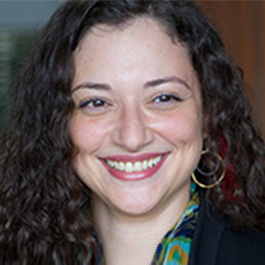Designing a New Approach to DTC
First-year engineering design course will emphasize learning processes, project iterations this quarter
To bring Design Thinking and Communication (DTC), Northwestern Engineering’s flagship undergraduate design course, to students remotely this quarter, class codirectors Alex Birdwell and Lisa Del Torto approached the transition of the second quarter of a two-part class as a design problem.
“We worked with more than 30 DTC faculty to brainstorm, design, and test new assignments and pedagogy, review work, and iterate as much as possible over the course of two weeks,” said Birdwell, associate professor of instruction in the McCormick School of Engineering.

Traditionally, the course has been supported by the extensive resources available in the Ford Motor Company Engineering Design Center, from the Ford machine shop to maker spaces to breakout rooms, all designed to foster collaboration and innovation.
The DTC faculty, led by Birdwell and Del Torto, brainstormed a new plan to adapt the essential aspects of DTC-2, the second half of the two-quarter course, for remote learning. In the transition, they hoped to maintain the class’ key learning objectives — framing a problem and determining the needs of a user population — and its rigor for iterative design and communication, while following best practices for inclusive and accessible online learning.
“We assumed students would be remote from campus, from each other, and from their project partners,” Birdwell said. “We also had to account for students being scattered across time zones with varying levels of access to stable and reliable internet. We re-wrote assignments to foster inclusion despite the remote environments and focused on ways to provide equitable access to learning for everyone.”
Faculty incorporated a labor-based grading assessment inspired by literature on writing pedagogy. This quarter’s evaluations will focus on the learning process and iteration, rather than the end product itself.

Without access to Ford, instructors will emphasize virtual communication to develop and convey ideas amongst students and with project clients. In-person meetings will be replaced with phone calls, video chats, email, and shared documents. Hands-on design training in the Ford shop will be replaced with an introduction to CAD.
Instead of developing physical prototypes for their projects, teams will incorporate sketches, CAD models, storyboards, videos, and demonstrations as part of their final deliverable to clients, which include Shirley Ryan AbilityLab, Cygnus Lactation Services, Trees that Feed Foundation, Northwestern University students and faculty, and Chicago-area residents.
“DTC remains an opportunity for students to develop and refine their abilities to collaborate, test their ideas, and communicate with their peers, instructors, and project partners,” Del Torto said.
Birdwell and Del Torto credit DTC executive committee members, including Weinberg’s Kathleen Carmichael, Megan Geigner, and Michele Zugnoni, and Northwestern Engineering’s John Anderson, Ken Gentry, Stacy Benjamin, Ordel Brown, Emma DeCosta, Ken Gentry, and Janice Mejia, for what will be a successful transition this spring — and pay dividends in the future.
“We trimmed DTC down to its essential elements,” Birdwell said. “Our evaluation of students will focus more on how they iterate their work while in their teams. These are positives, and we’ll look at ways to leverage these changes as we offer the course in the future.”
